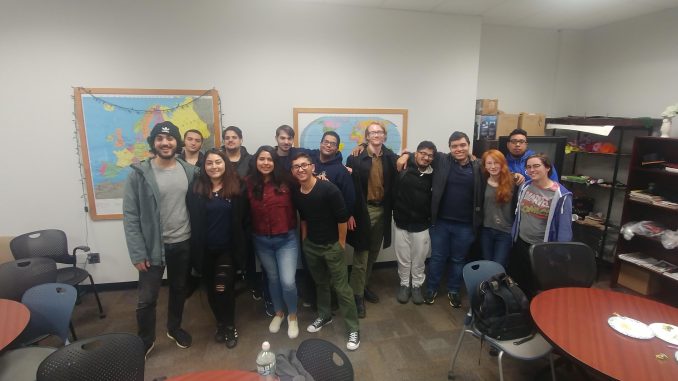
Tuesday, Oct. 12 marked the first meeting of the newly resurrected Brooklyn College Historical Society. Excited about much more than just the free pizza, a diverse and lively body of students gathered in Boylan Hall’s History Lounge for the club’s first meeting of 2019. The meeting served primarily as a forum to share ideas about how the club will operate in the coming semesters and elect a new set of leaders.

The revival of the club came about largely from the work of Grace Paré, who is currently interning for the history department, managing the department’s various social media pages.
“I wanted to see the Historical Society develop into something bigger and better,” Paré said.
Her work to get the club up and running began with encouragement from department faculty such as co-chair Philip Napoli. This encouragement was built on Napoli and other faculty’s lasting enthusiasm for getting students involved in the department outside of the classroom.
“We think that an active historical society can be a plus for student learning and engagement,” Napoli said.
The Historical Society has had a long-standing tradition of going in and out of operation. This nature, Grace Paré told the Vanguard, had become a familiar aspect of the club due in part to a poor circulation of new underclassmen. “It needs to be restarted every few years because all the people involved in it graduate and move on,” she said.
The new leadership of the club, headed by junior Stephanie Fuentes and senior Nolan Frontera, aims to change that. Part of their plan is to extend an invitation to join the club to all majors as well as to encourage underclassmen to come and check it out.
“I want to reach out to people who aren’t history majors,” said Paré. “I think that we could really benefit from the involvement of related majors.”
In years past, the Historical Society has been an integral part of history majors making their way through Brooklyn College. The club used to serve as a space to digest the latest contributions in the field of history by inviting lecturers and publishing students’ writing in the student-run journal CLIO (named for the Greek muse of history). Prof. Napoli stressed the importance of publishing material, giving students experience in submitting to and editing in a journal.
The basic function of the club is straightforward – to provide a space for any students interested in history to explore that interest outside of the classroom. Paré provided a compelling case for the club’s existence and why students should join.
“I think too many history majors are experiencing the department in the way that I used to, as just a collection of classes and professors, rather than as a dynamic educational experience where new developments in the field are constantly being presented for our benefit,” she said.
This club’s revival may pass beneath some students’ radar, but the great determination required to revive a club is clear. Professor Napoli, the elected leadership, and the rest of the newly regimented club are hoping that any interested students feel free to get into contact with the club and see what it has to offer. Going forward they are hoping to implement events, guest speakers, and museum trips. So to all who are interested in history, now is the time to write yourself into it.
